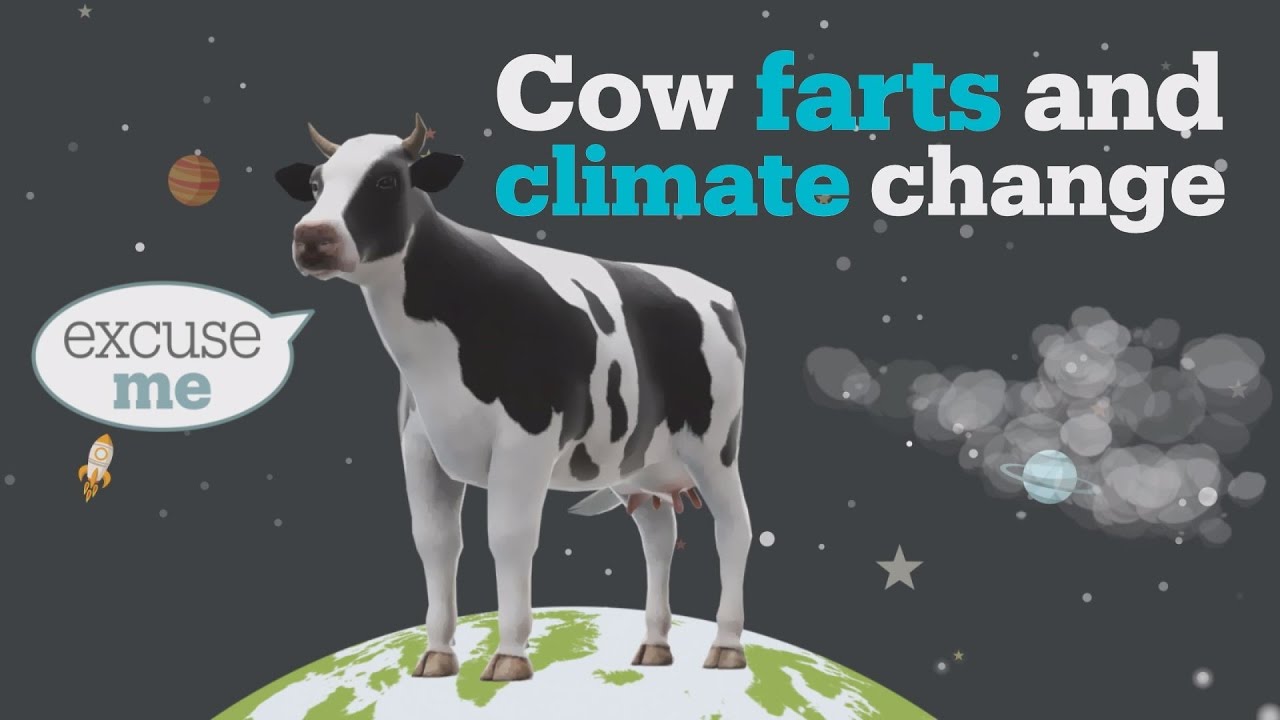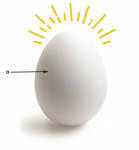Dr. Rudi on Climate Change and Cow Farts

Warmer or even occasional cold winters and other relatively short climatic events are not an indicator of climate change or even what is causing this to occur. Observations of short term weather events and their extrapolation to long term climate change is another example of man’s arrogance and erroneous views about nature. Climate change does not have short term consequences, it is a long term trend up or down. There has, of course, been the fully documented rise of average temperatures worldwide over the last century and therefore an established fact. This fact needs to be understood fully by everyone: That average temperature increases over the past hundred years is proof enough of climate change.
There are many obvious vectors causing climate change including: cow farts (they actually contribute more CO2 than cars, buses, and airplanes combined), industries, coal power plants, and natural climate change which has happened many times even before humans existed (there have been several ice ages). This is currently a political problem brought on by amateur hacks and politicians.
I personally have an open mind on this and I want the facts to be available in a non-political presentation. Of course there is climate change going on and I’m an Independent voter, so therefore no political bias here.
There should be an independent group of scientists appointed by say the National Science Foundation with one politician from each party attending as observers but no vote. The members of the council should be chosen like a civil jury so that no bias is present. After that there needs to be an assignment of percentages of causes of climate change in each area. Then, we should take reasonable steps in each area where the economic and climate benefits are the greatest. Tackle the low hanging fruit first. Eat less red meat = produce less cow farts. Drink less cow milk (I am not saying stop) and replace with almond milk and Oatly Creamy Oat Milk. Presto, less cow farts and cooler weather! At the same time you are reducing healthcare cost because of less metabolic syndrome cases (milk) and heart disease (too much corn fed beef, I do eat a little grass fed beef, but mostly fish). Use more renewable energy: eat plants, algae, vegetables, and grains that use less water in agriculture and meat production and produce less byproducts and waste. If byproducts are produced, use them efficiently and do not create landfills.
Concerning the energy and calorie efficiency of beef production, it takes about 6 pounds of feed (mostly corn) to make 1 pound of live flesh in Cows. The difference is mostly methane production and carbon dioxide (both greenhouse gases). Other animals have about the same or close to this bad energy/calorie efficiency. As far as the amount of edible meat produced after slaughter of beef and discarding unusable parts, the ratio looks more like 16 pounds of feed to make one pound of edible meat. This is a bad ratio and extremely inefficient. For example the Feed Conversion Ratio (FCR) for fish are much better. The table below lists typical FCR for a number of species.
Food Conversion Ratio for Different Species
|
Species |
Type |
FCR |
|
Atlantic Salmon |
Fish |
1.15 |
|
Tasmanian Atlantic Salmon |
Fish |
1.35 |
|
Barramundi |
Fish |
1.50 |
|
Chicken |
Fowl |
1.79 |
|
Pig |
Swine |
2.63 |
|
Lamb |
Sheep |
6.30 |
|
Cow |
Beef |
6.5 |
The existing situation is that Cows, Pigs, and Lambs are very inefficient producers of meat. They are bad converters of biomass to meat and emit massive amounts of greenhouse gasses. Why is this so? They are warm bodied animals and use some of their food for energy and heat, some of the feed remains unconverted and results in manure, itself a waste product. This is why producers often place animals in feed lots so they cannot walk around wasting energy. Conserving energy produces more meat. Is this practice ethical? Well no, not really. Manure itself contributes to climate change since it emits mostly methane as a greenhouse gas. Methane as a greenhouse gas is far worse than CO2 coming from auto emissions.
The sensible thing to do is to reduce the consumption of Beef, Pork, and Lamb, while shifting consumption to Vegetables, Berries, Fish, and Chicken. This act alone will improve health, reduce health care costs, and lead to a better environment with less greenhouse gas emissions. This gradual switch will improve the lives of millions of people, reduce the number of skin cancer cases, and be good for the planet. I am not saying to stop eating meat, I am suggesting more balance in the diet and to encourage our children to eat healthier while protecting the planet’s environment.
We Can Do It!


0 Comments